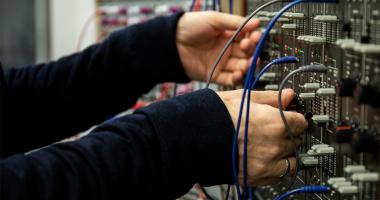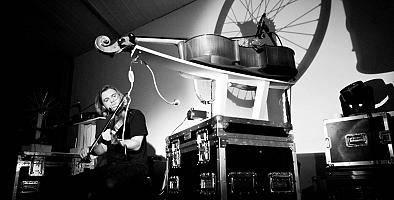Course information
Department
Length
1 year full-time or 2 years part-time
Scholarship information
Course overview
The MMus Composition fosters your ability to compose and notate music, and to develop your own personal musical language.
- You explore a wide range of technical procedures for contemporary composition and engage intellectually and critically with related theories and concepts.
- There are many practical opportunities to work with performers, including the Department of Music's ensemble-in-residence, and other artistic collaborators.
- The composition pathway appeals to composers interested in a wide range of contemporary music including Boulez, Stockhausen, Birtwistle, Carter, Xenakis, spectral music and improvised music.
- There's a focus on fundamental issues concerning pitch, time and pulse, and covers topics such as orchestration, advanced instrumental techniques, large-scale structure.
- Composers taking this pathway may elect to take options in studio-based composition, providing they have the requisite prior experience.
- There are also opportunities to work with visiting professional musicians and meet visiting composers, which have included Harrison Birtwistle, Michael Finnissy, Brian Ferneyhough and Jonathan Harvey.
Contact the department
If you have specific questions about the degree, contact Roger Redgate.





